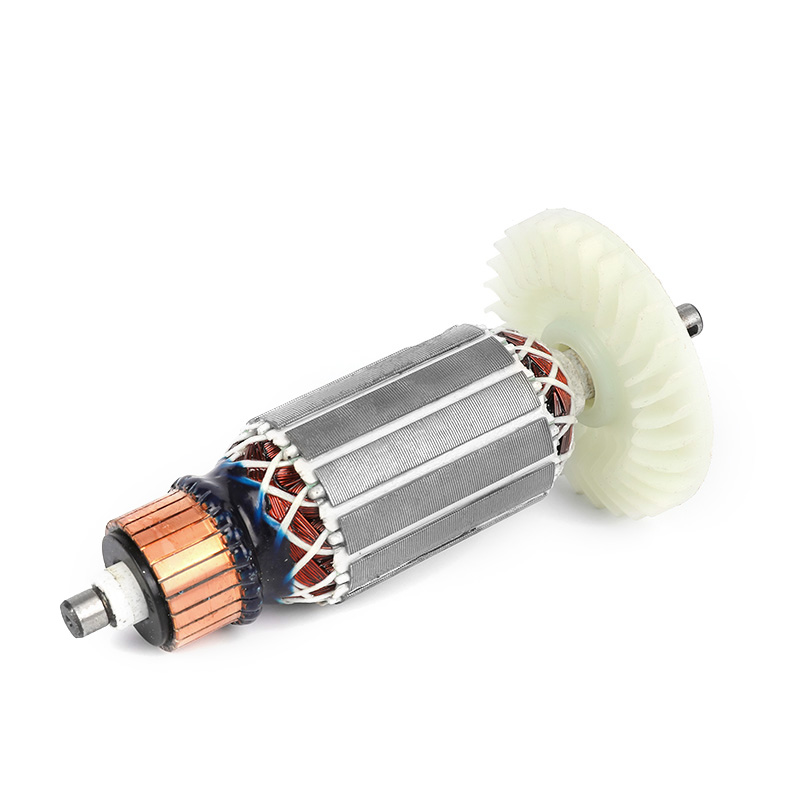- Home
- Products
- About Us
- Application
- News
- Contact Us
Web Menu
- Home
- Products
- About Us
- Application
- News
- Contact Us
Product Search
Exit Menu
How Does Stator Quality Affect Power Tool Performance?

Power tools are essential in construction, woodworking, metalworking, and home improvement. While many users focus on motor power or battery life, the quality of internal components, especially the stator, plays a significant role in performance.
Understanding the Stator
The stator is the stationary part of an electric motor that interacts with the rotor to generate motion. It consists of laminated steel cores and copper windings, which create the magnetic field necessary for motor operation. In power tools, the stator determines how efficiently electrical energy is converted into mechanical motion. A well-designed stator ensures smooth operation, consistent torque, and reliable tool performance.
Impact on Efficiency
High-quality stators improve energy efficiency. When the windings and cores are precisely manufactured, electrical resistance is minimized, reducing energy loss. This efficiency translates into longer runtime for battery-powered tools and lower electricity consumption for corded models. A Stator For Power Tools that meets strict quality standards allows the motor to run more smoothly, providing consistent power output and reducing heat generation during prolonged use.
Influence on Tool Durability
Durability is another area where stator quality makes a difference. Poorly manufactured stators may have weak windings or uneven lamination, leading to overheating and premature wear. Over time, this can result in motor failure, reduced performance, or even safety hazards. A reliable Stator For Power Tools is built to withstand continuous operation, ensuring that the tool maintains performance over its lifespan.
Effect on Torque and Speed
Torque and speed are critical for cutting, drilling, or grinding tasks. The stator's magnetic field directly affects the rotor's movement, so variations in stator quality can cause inconsistent torque or speed fluctuations. Tools with high-quality stators provide steady torque, enabling precise cuts and smooth operation. This consistency is particularly important in professional settings where accuracy and reliability impact project outcomes.
Heat Management and Safety
Heat management is another factor influenced by stator quality. Excessive heat can damage insulation, warp components, or trigger safety shut-offs. A well-engineered stator dissipates heat efficiently, maintaining stable operation even under heavy workloads. By reducing the risk of overheating, a quality Stator For Power Tools contributes to user safety and prevents downtime caused by motor damage.
Compatibility with Advanced Features
Modern power tools often include electronic speed control, overload protection, and brushless designs. Stator quality affects how effectively these features perform. Precise winding and balanced construction allow advanced electronics to monitor and adjust motor performance accurately. Investing in a high-quality stator ensures that additional features function reliably, enhancing the overall user experience.
Stator quality is a crucial factor in power tool performance, affecting efficiency, durability, torque consistency, heat management, and compatibility with advanced features. A well-manufactured Stator For Power Tools ensures that motors run smoothly, maintain power output, and provide safe, reliable operation over time. For both professionals and hobbyists, paying attention to stator quality can lead to better tool performance, longer lifespan, and fewer maintenance issues. Understanding this connection helps buyers select power tools that deliver consistent results and meet the demands of various tasks.
-
Add: 1st Floor, No. 2, Huanan Road, Zhengcun, Economic Development Zone, Yongkang City, Zhejiang Province, China
-
Tel: +86-0579-87133113
-
E-mail: [email protected]

 English
English русский
русский Español
Español